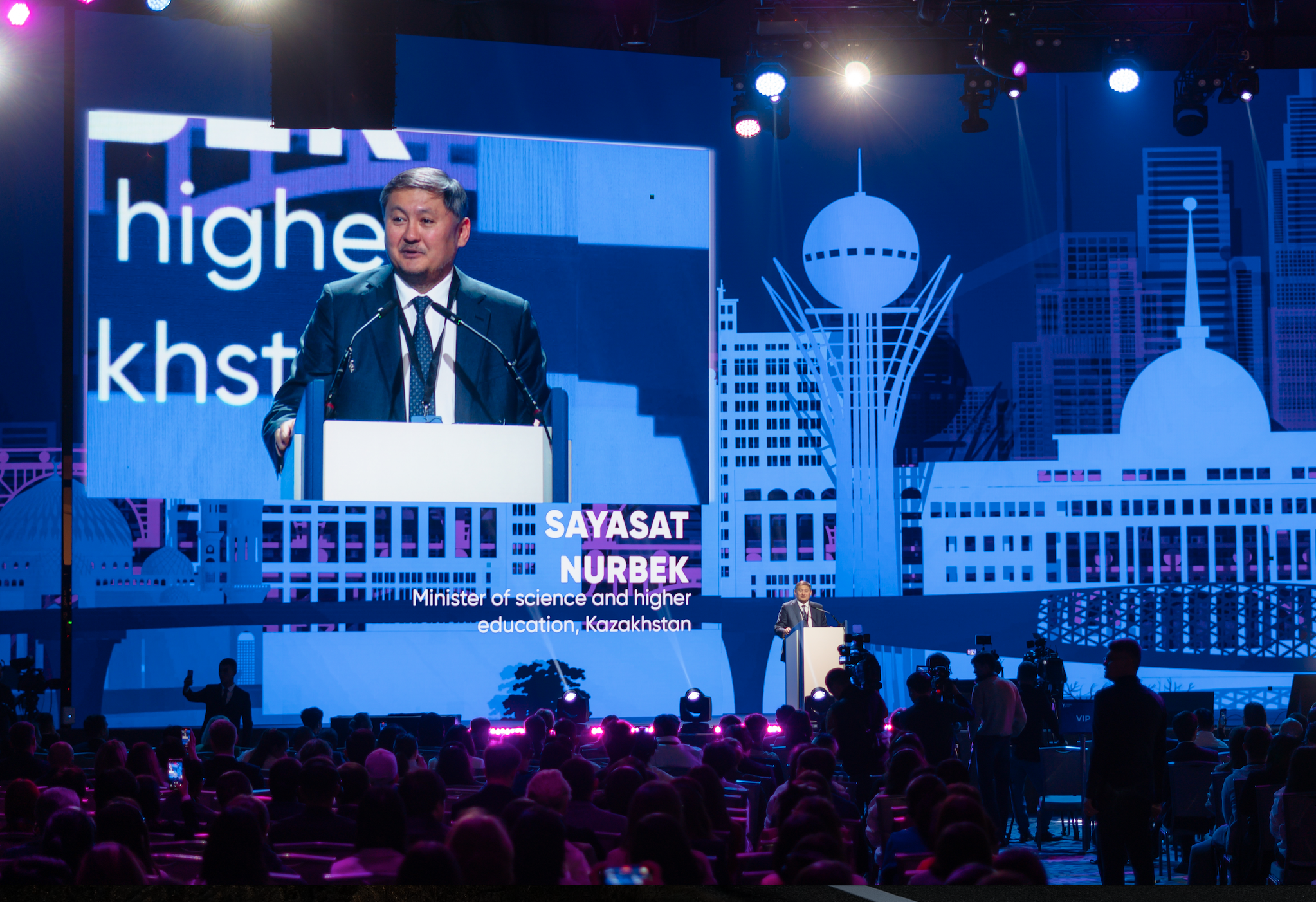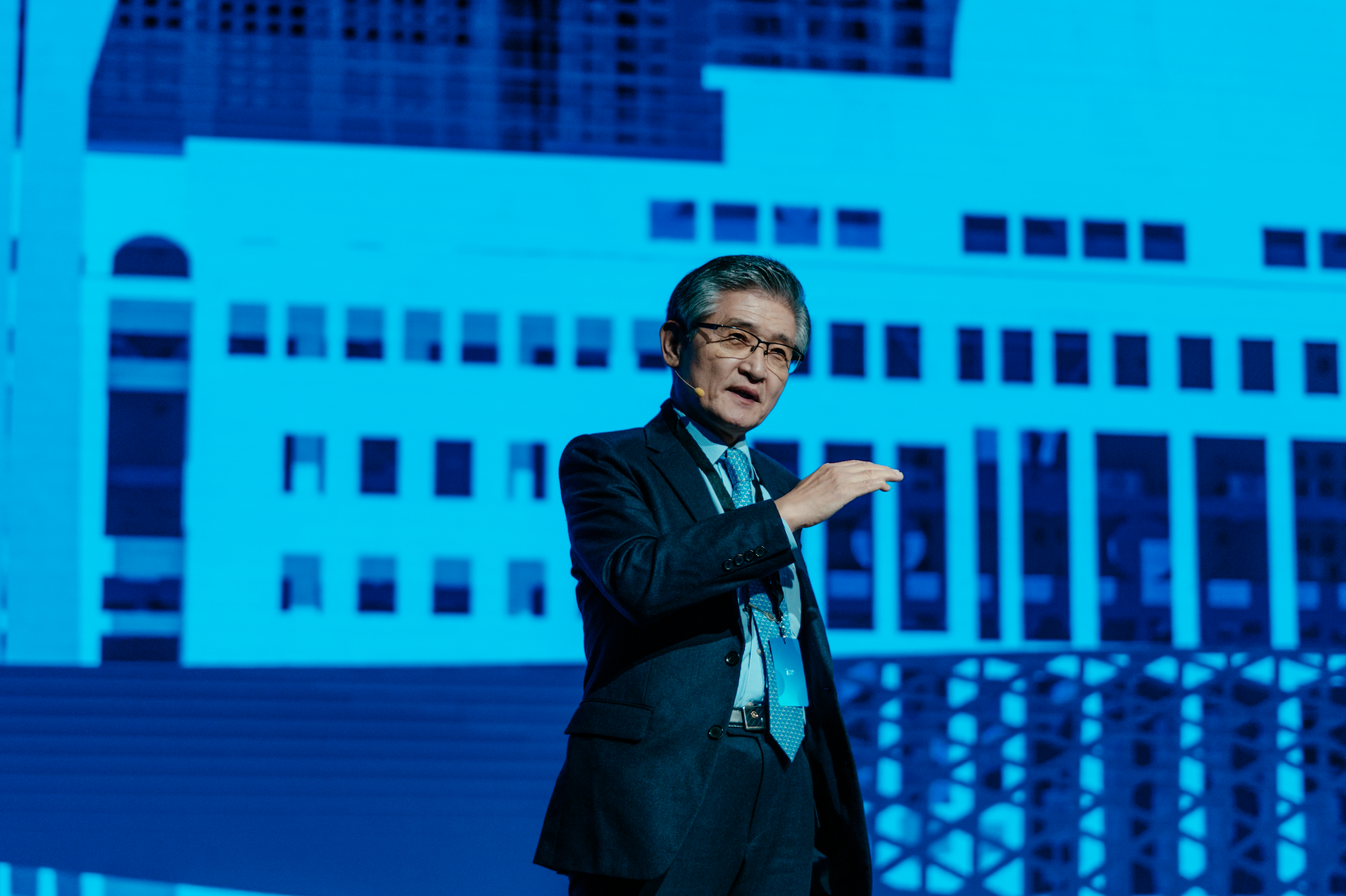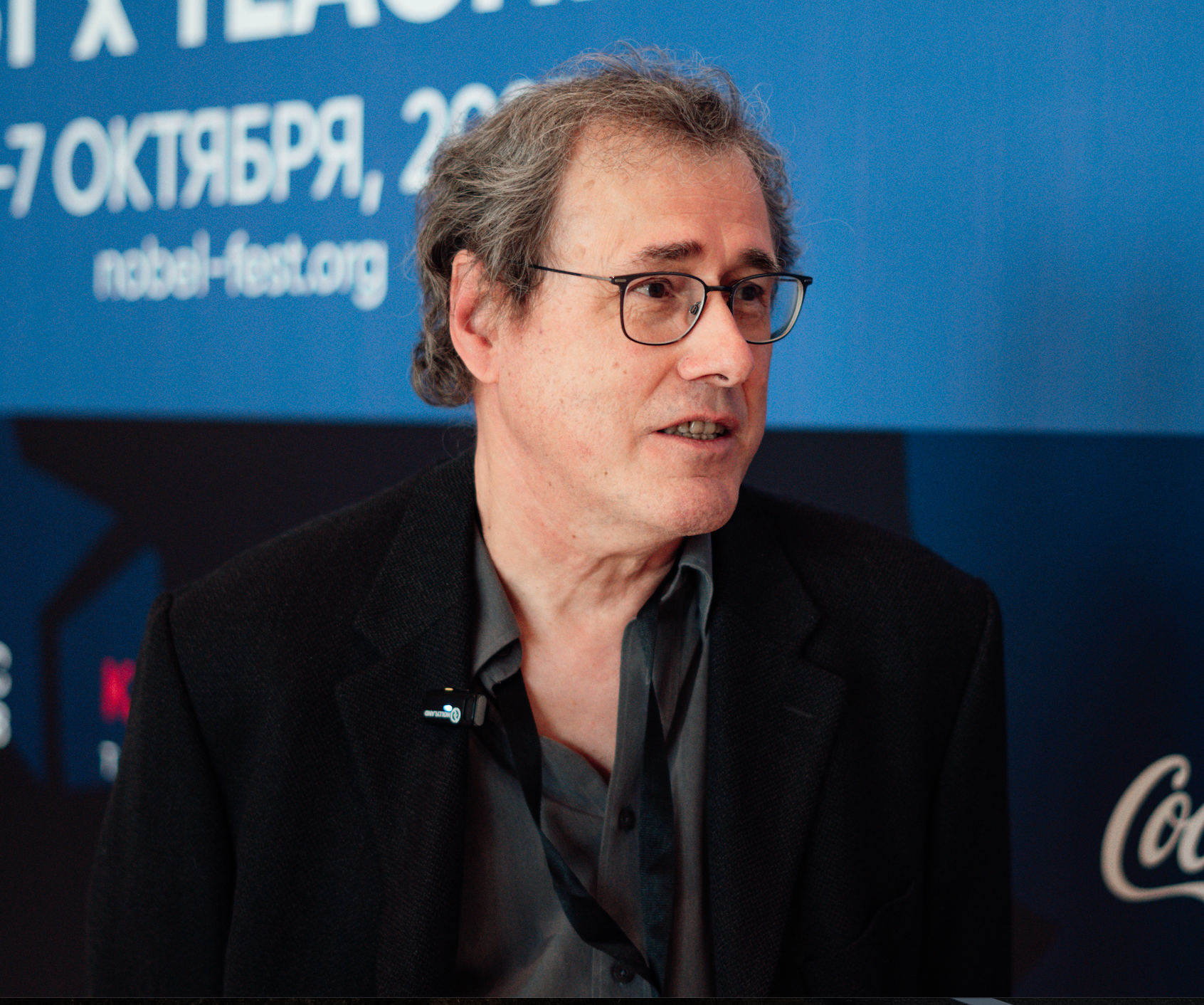ASTANA – The Nobel Festival in Astana featured a spectacular plenary session on Oct. 5 that brought together education leaders and Nobel Prize winners from various fields to discuss how technology and artificial intelligence (AI) are fundamentally reshaping the world and education systems.

Sayasat Nurbek. Photo credit: Nobel Fest.
“The science and research agenda is back on the menu. Last year was quite an amazing year for technology breakthroughs and innovation. We have been closely monitoring what is happening and what is changing in the world. AI is becoming a big new thing. The AI revolution is what everybody is worried about,” said Kazakh Minister of Science and Education Sayasat Nurbek, addressing the plenary session.
AI is a vast industry worth billions of dollars, with an abundance of tools now accessible to the general public. Generative AI alone, which refers to tools such as Chat GPT, has the potential to contribute up to $4.4 trillion to the global economy, according to a June report from the McKinsey Global Institute. This projection represents one of the more optimistic forecasts regarding the economic impact of this rapidly advancing technology.
“We are standing on the brink of quite interesting revolution,” said Nurbek.
Many individuals are using applications to transform their images into lifelike avatars, while automated systems are generating TV scripts, academic essays, and job resumes that closely mimic human writing.
“Pharmaceuticals, genetics, precision gene editing. There is a huge revolution happening in biotechnology,” he noted.
Nurbek stressed the power of AI to transform the way people live and think.
“The reason we are holding and hosting and supporting events like this is to spark the imagination of younger audiences,” he added. “It is the young people, the young minds, inquisitive minds, hungry minds, who should be absorbing all the knowledge, all the news, all the inspiration that will come out of the sea.”

Rae Kwon Chung. Photo credit: Nobel Fest.
The plenary session continued with a stirring address by Rae Kwon Chung, Nobel Peace Prize winner in 2007 and member of the Intergovernmental Panel on Climate Change (IPCC).
He echoed Nurbek’s words, saying the world is entering an “exciting stage of science and technology development,” but at the same time a “very challenging time.”
“Now, we are entering into a very dynamic juncture where our conventional knowledge is no longer very much relevant,” he said.
AI is not able to solve political and social problems the world is facing now, he added.
“Based on old knowledge, we cannot solve the problems of the future – social, economic, and political. We need breakthrough knowledge to utilise AI, but as a tool, not as a master. To do this, we need to develop creativity and innovation. But where do we get them from? Perhaps from traditional education, but this is becoming an ever greater challenge. AI, Chat GPT pose significant challenges to the traditional education system,” he noted.

Pascal Mayer. Photo credit: Nobel Fest.
Pascal Mayer, a French scientist and a laureate of the global Breakthrough Prize, also spoke about how artificial intelligence is changing our world. “I agree that AI has to be a tool that inspires humans in their work,” he said.
AI starts replacing humans in generating news, images, and films.
“It is already becoming difficult to make diference between real news and fake news. In the future world, trust will become the most important asset, the most crucial element. You can trust neighbours, people you know, but you cannot trust what you see on the internet, in the news. If we do not overcome these obstacles and problems, it will be very difficult for humanity to live,” he said.
Mayer, who has been working on DNA sequences, injected a touch of humor into his remarks, saying, “Kazakh people have a great DNA.” He mentioned Dimash Kudaibergen, a popular Kazakh singer, and Kunsulu Zakaria, a prominent scientist who led the team to develop Kazakhstan’s own COVID-19 vaccine.
“I want to stress that we didn’t hear much of Kazakhstan in France, but we heard about QazVac and Dr. Zakaria. I must say that I was, personally, very impressed what you were able to do during the COVID crisis, getting a vaccine together. Most important, you were able to make a clinical trial to evaluate it,” he said.
Wrapping up the session, Nobel Fest founder and CEO Maxat Kurbenov stressed the ever-important role of human capital.
“For us, as a young state, as a progressive society, it is important for Kazakhstan to adopt global knowledge, so when they say that people are the new oil, I strongly disagree. People have always been and will be the most valuable resource of the state. Because without the contribution of each of you, it will be impossible to build a knowledge society,” he noted.
In his state-of-the-nation address, President Kassym-Jomart Tokayev also suggested utilizing the power of AI, which could help Kazakhstan make a leap toward a knowledge-based economy. He tasked the government to forge cooperation with leading international companies and focus on training qualified specialists by involving at least three renowned universities.

